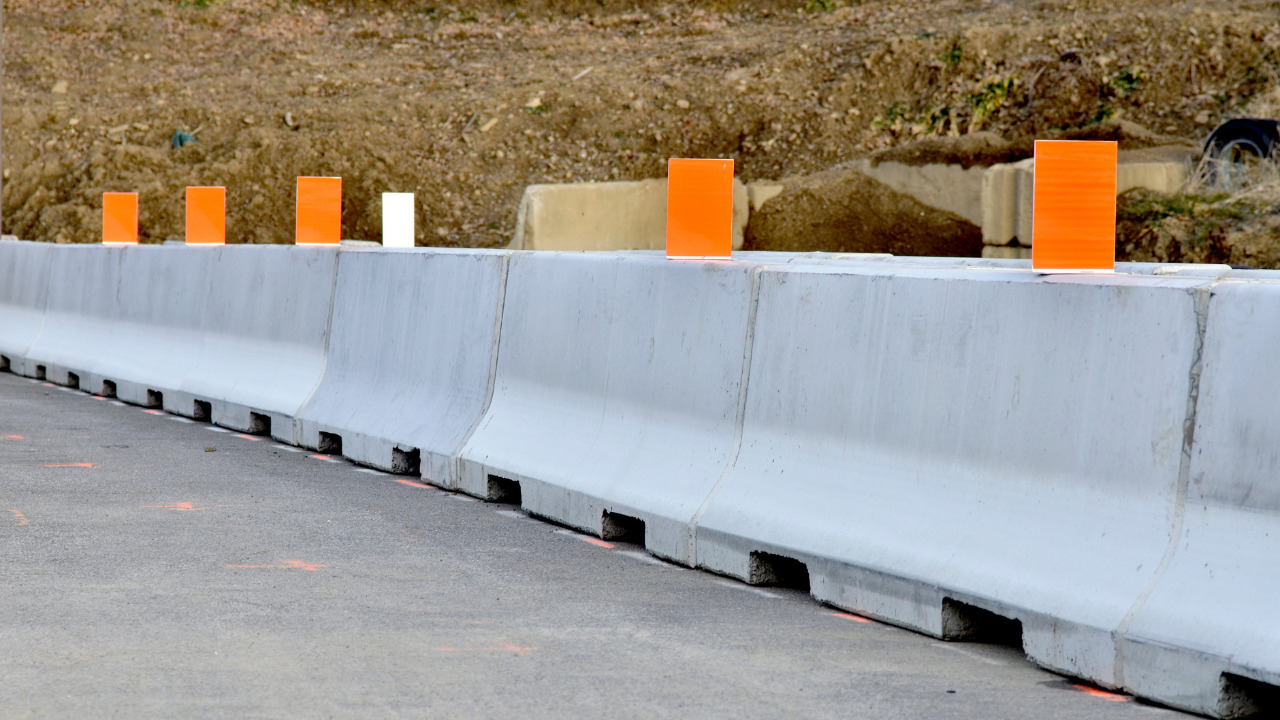Concrete barrier blocks are primarily used as building materials in the construction of walls. They are also known as concrete masonry units (CMU). These blocks are among the precast concrete products used in construction. Concrete barrier blocks have an array of properties:
- Strength and structural stability
- Fire resistant
- Durable
- Insulation and sound absorption
These blocks are made up of gravel, cement, sand, and water. The main purpose of concrete blocks is safety. You can find them in a number of places, including construction sites, road traffic, warehouses, etc.
Table of Contents
Uses of Concrete Barrier Blocks
1. Guiding Traffic
There are various types of barriers for guiding traffic, but concrete barriers are the best. This is because they are very stable and strong, unlike other barriers. It is important to use barriers that can stand in place when hit accidentally by vehicles. These blocks can help you solve traffic problems on your property. Note that you can move them if need be.
2. Creation of Bays for Parking
Concrete barriers can help in creating temporary parking spaces, especially in open physical areas. For instance, you can use this technique to solve parking issues at an event or a construction site.
3. Access Prevention
The extreme weight of the concrete barrier block makes it ideal for access prevention. These blocks cannot be shifted, towed, or moved. You can use them to prevent trespassers on your land. For instance, these blocks strengthen security in a construction site with high-end equipment and tools. Preventing access can reduce the risks of crime, save money, and protect lives.
4. Restrict Visibility
Project managers install concrete barriers to reduce the visibility of the construction site. This is essential because it minimizes distraction to passing motorists. In addition, it keeps the construction work confidential. The construction of some institutions, such as a local authority structure, requires privacy.
5. Defence Systems
Concrete barriers can provide a stable structure to combat water ingress and flooding. These barriers reduce the risks of flooding because they interlock seamlessly.
On a construction site, these blocks can help in preventing landslides and mud slips. They act as a retaining wall to lower the risk of occupational hazards and other impacts that might occur as a result of natural calamities.
How Long Do Concrete Barriers Last?
The lifespan of concrete barriers ranges between 20 years and 100 years. The durability of these blocks may differ from one geographical location to another. For instance, concrete barriers in areas that experience harsh climatic conditions tend to have a lesser lifespan.
Adverse weather conditions can increase the level of degradation, thus lowering the integrity of the block. In most cases, concrete barriers can be used for several projects because they are durable.
Conclusion
A concrete barrier is essential for safety on construction sites. These barriers can be used for various purposes: restrict visibility, prevent access, guide traffic, and create bays for parking. In some instances, concrete barriers can be used to protect structures against water ingress and flooding. Investing in these barrier blocks is a worthwhile investment because they have a long lifespan.





